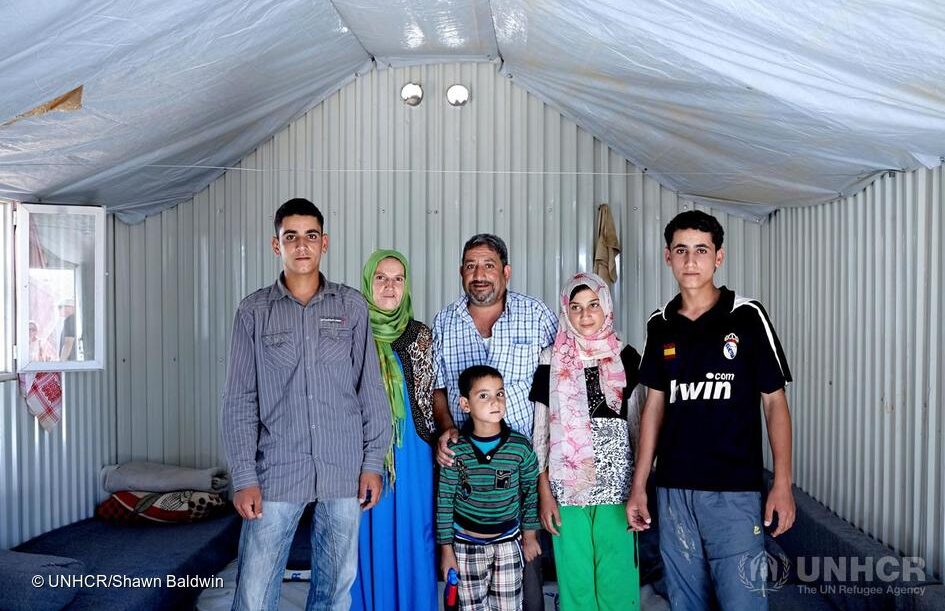The annual Norwegian contribution to UNHCR for achieving resettlement solutions will in 2016 be focused on aiding Syrian refugees in Lebanon, Turkey and Jordan.

Syrian refugee Fayez, 46-years-old, poses with members of his wife Mona, daughter Bushra, son Amer, left and Mohammed in his shelter at the Azraq refugee camp in Azraq, Jordan.
Five years on, Syria’s conflict has spawned 4.8 million refugees in neighbouring countries, hundreds of thousands in Europe, and 6.6 million people displaced inside Syria against a pre-war population of over 20 million.
The Norwegian government contributes NOK 12.8 million (USD 1.6 million) in support of UNHCR’s work in achieving resettlement solutions for Syrian refugees. The contribution will cover costs such as hiring interpreters, interviewing facilities, transportation for refugees, security measures and operational costs.
In 2015 Norway provided a similar contribution which allowed UNHCR to increase necessary staffing capacity, enabling UNHCR Lebanon to process larger numbers of refugees for resettlement and humanitarian admission consideration than in previous years.
“Syria is the biggest humanitarian and refugee crisis of our time, a continuing cause of suffering for millions which should be garnering a groundswell of support around the world,” said UN High Commissioner for Refugees Filippo Grandi,
With almost five million Syrian refugees living in the neighbouring countries and millions more forced from their homes within Syria, living conditions have come under enormous pressure, forcing many refugees to start dangerous sea crossings across the Mediterranean to reach safer shores in Europe. To alleviate the pressure in the region, and to stop the dangerous sea crossings, further legal pathways to Europe should be explored. Resettlement is one of many possible ways for refugees to receive life-saving protection.
Resettlement is the transfer of a refugee from an asylum country to another state that has agreed to receive them. Of the millions of refugees of concern to UNHCR around the world, less than one per cent is submitted for resettlement. The process starts when UNHCR submits the profile of a refugee for resettlement to the receiving country’s authorities, based on the receiving country’s requested profile and resettlement quota. The receiving country then decides how to proceed with investigating the case of the applicant. One of the applicants were young brothers from Syria, Mohamed and Youssef. Unable to access medical treatment for serious heart and kidney conditions, they and the rest of their family were accepted for emergency resettlement to Norway.
Norway was UNHCR’s eighth largest donor in 2015, with USD 88 million donated. A large portion of this was unearmarked, which allows UNHCR to react swiftly and efficiently to humanitarian emergencies.
Share on Facebook Share on Twitter